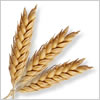
 USA: Iowa State University researchers will improve the barley varieties
USA: Iowa State University researchers will improve the barley varieties
Researchers at Iowa State University have been chosen to participate in a $5 million, four-year project designed to improve the barley varieties available to producers, SeedQuest communicated on March 31.
"The goal of the project is to integrate and utilize state-of-the-art genomic tools and approaches in barley breeding, which will lead to the development of superior cultivars," said Roger Wise, a USDA collaborating professor in Iowa State's plant pathology department.
Iowa State will receive about $585,000. The U.S. Department of Agriculture National Research Initiative grant was awarded March 1.
The Barley Coordinated Agricultural Project, which is being led by University of Minnesota, involves 30 scientists at 19 research institutions who have expertise in genomics, breeding, pathology, food science, computer science and statistics. Wise is one of five investigators on the project's executive committee.
The first step is the development of an integrated map of the barley genome that includes details of the more than 4,000 molecular markers that have been identified in various barley research projects. The team will use a marker detection technology that takes advantage of changes in the four chemical bases that are the building blocks for barley genes. This will make it possible to identify beneficial genes carried by hundreds of varieties in use throughout the U.S. barley breeding programs.
Iowa State scientists will play a major role by assembling the barley genomic information into one database. "Our acceleration in the understanding of plant genomes and the genes that control important traits has created new opportunities for crop improvement," Wise said. "The shear amount of data requires 'next-generation' databases to efficiently manage information so plant breeders can make improvements in disease and stress resistance, food and nutrition."
Julie Dickerson, an associate professor in electrical and computer engineering, will lead the effort to develop The Hordeum Toolbox - an integrated Web portal with bioinformatics tools so researchers can access barley data collected from a variety of sources. Hordeum is Latin for barley.
"The Web portal is the glue that holds the whole thing together," Wise said. "This will make it easier for researchers around the country to use the information as part of their barley breeding programs. The end result will be healthier, more flavorful barley for consumers and more profitable barley production for farmers."
Wise and Dickerson are team leaders on The Hordeum Toolbox. Using funds from another USDA National Research Initiative grant, they already have developed two online interactive databases that help researchers analyze and access barley genomics information. This new project will build on those earlier successes.
Other parts of the coordinated project will involve researchers developing methods to use the Hordeum Toolbox for applied barley breeding, plus educating students, scientists, producers, processors and consumers in the use of genomics technology for gene discovery and crop improvement.
Jean-Luc Jannink, assistant professor of agronomy at Iowa State, will be involved in the data analysis and educational aspects of the project. He said improvements in barley varieties will come from accurate identification of which varieties have the best genetics and which crosses between varieties will produce the best combinations.
"New analyses that combine field and malting observations with information on the barley genes and variety origins from The Hordeum Toolbox will help breeders decide which varieties to keep and which to cross," he said.
Wise said the coordinated project addresses a pressing need for barley - identifying the genes that control economically important traits in breeding material and enabling breeders to use them to bring better barley to farmers and consumers.
All results of the research will be available to scientists, growers and the food industry through the project's public Website at http://www.barleycap.org.
Regresar
E-malt.com, la fuente de información global para los profesionales de la industria cervecera y de malteado. Los boletines quincenales de E-malt.com incluyen las últimas noticias de la industria, estadísticas en gráficos y tablas, precios mundiales de cebada y malta, y otra información relevante. Haga clic aquí para obtener acceso completo a E-malt.com. Si usted es un cliente de Castle Malting, puede obtener acceso gratuito al sitio web y publicaciones de E-malt.com. Contáctenos para obtener más información en marketing@castlemalting.com.





